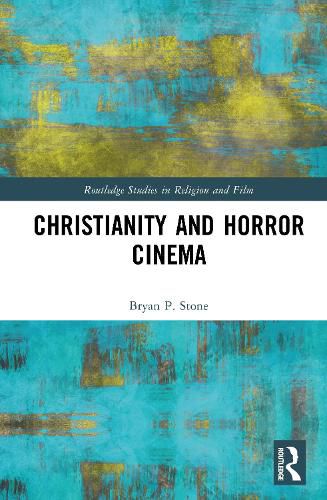Readings Newsletter
Become a Readings Member to make your shopping experience even easier.
Sign in or sign up for free!
You’re not far away from qualifying for FREE standard shipping within Australia
You’ve qualified for FREE standard shipping within Australia
The cart is loading…






Christianity and Horror Cinema explores ways that Christian beliefs, spiritualities, practices, and symbols provide the religious and existential 'depths' out of which the monsters of Western horror cinema have emerged, arguing that they are, in several respects, the monsters for which Christians are responsible. Horror cinema preys on Christianity's narrative, moral, cultural, and aesthetic traditions, reverses them, upends them, inverts them, and offends them. But it also reflects and relies on them. The book focuses on seven subgenres in the cinema of horror: ghosts, witches, the demonic or Satanic, vampires, nature horror, zombies, and psychological horror. Each chapter traces the history of that subgenre, taking up a theological analysis of ways that horror cinema capitalizes on ambiguities, contradictions, anxieties, and tensions in Christianity-for example, its treatment of the body, nature, sexuality, women, or those it deems pagan or religiously 'other.' The author examines a variety of films that are important for thinking about the relationship of Christianity to horror cinema. The book will be of interest to scholars of religion, theology, and film studies.
$9.00 standard shipping within Australia
FREE standard shipping within Australia for orders over $100.00
Express & International shipping calculated at checkout
Christianity and Horror Cinema explores ways that Christian beliefs, spiritualities, practices, and symbols provide the religious and existential 'depths' out of which the monsters of Western horror cinema have emerged, arguing that they are, in several respects, the monsters for which Christians are responsible. Horror cinema preys on Christianity's narrative, moral, cultural, and aesthetic traditions, reverses them, upends them, inverts them, and offends them. But it also reflects and relies on them. The book focuses on seven subgenres in the cinema of horror: ghosts, witches, the demonic or Satanic, vampires, nature horror, zombies, and psychological horror. Each chapter traces the history of that subgenre, taking up a theological analysis of ways that horror cinema capitalizes on ambiguities, contradictions, anxieties, and tensions in Christianity-for example, its treatment of the body, nature, sexuality, women, or those it deems pagan or religiously 'other.' The author examines a variety of films that are important for thinking about the relationship of Christianity to horror cinema. The book will be of interest to scholars of religion, theology, and film studies.